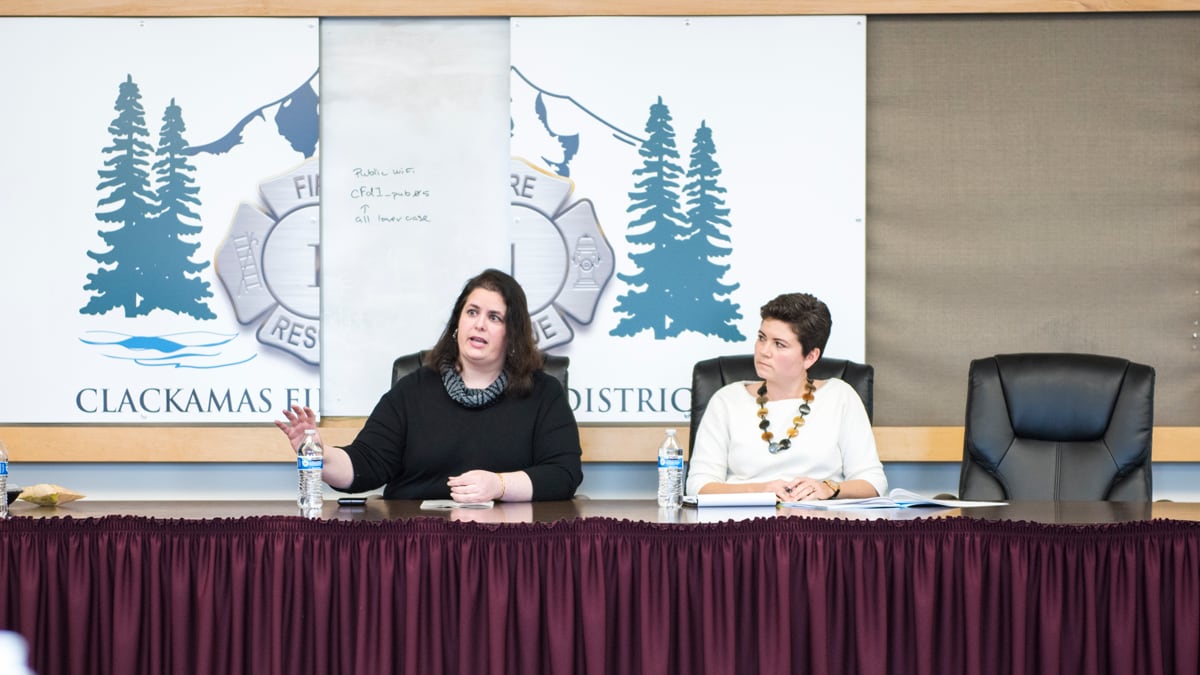The backers of Initiative Petition 13, a proposed "no debt for public pensions" amendment to the Oregon Constitution, announced today they have gathered 1,570 signatures, the number required to begin gathering the far larger number of valid signatures—149,360—required to qualify for the November 2020 ballot.
The three chief petitioners are former state Reps. Mark Johnson (R-Hood River) and Julie Parrish (R-West Linn) and Portland lawyer and education activist Kim Sordyl. All three have been critical of the squeeze the state's nearly $27 billion unfunded public pension liability puts on current services, particularly in the area of K-12 education.
Their initiative calls on the state treasurer to calculate the unfunded liability of public employee retirement systems on Dec. 31, 2022 and then effectively prohibits policy makers from allowing that liability to grow larger, or to borrow money to offset the liability.
In response to growing demands from PERS obligations, government agencies in Oregon have issued billions of dollars worth of PERS bonds. Those bonds allow the governments to borrow cheaply and invest the proceeds of that borrowing in the pooled accounts overseen by the Oregon Investment Council.
If the investment returns exceed the cost of borrowing, the resulting positive margin helps buy down the pension liability of the government agency. If investment results are negative, or less than the cost of borrowing, however, the net effect of the strategy would be an increase in the agency's pension liability.
The proponents of IP 13 would like to end what is a risky, albeit historically effective, strategy.
"We can no longer afford to keep kicking debt decades into the future, or masking the debt that's being accrued through unfunded liabilities or bonded obligations that fail to return revenue to pay for pensions," Sordyl said in a statement.
After the secretary of state's elections division validates the qualifying signatures, the chief petitioners will have until July 2020 to gather the required signatures.

